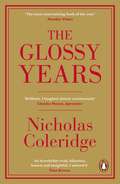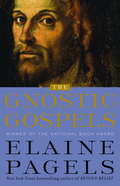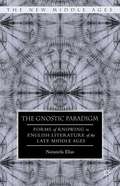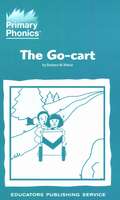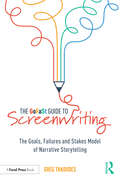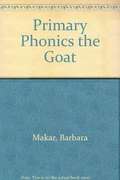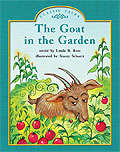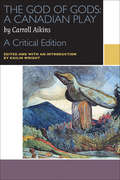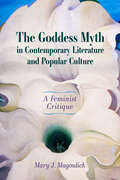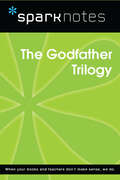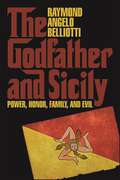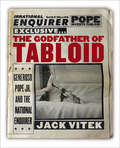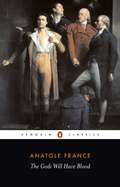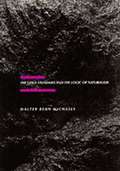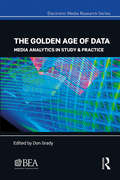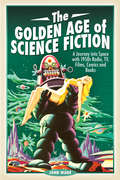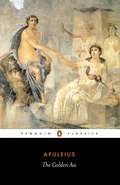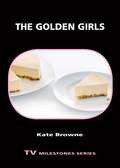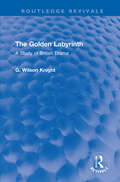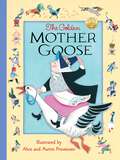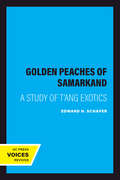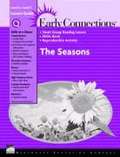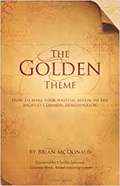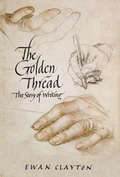- Table View
- List View
The Glossy Years: Magazines, Museums and Selective Memoirs
by Nicholas Coleridge'The most entertaining book of the year' Sunday Times _____________________________________________________Diana touched your elbow, your arm, covered your hand with hers. It was alluring. And she was disarmingly confiding."Can I ask you something? Nicholas, please be frank..."Over his thirty-year career at Condé Nast, Nicholas Coleridge has witnessed it all. From the anxieties of the Princess of Wales to the blazing fury of Mohamed Al-Fayed, his story is also the story of the people who populate the glamorous world of glossy magazines. With relish and astonishing candour, he offers the inside scoop on Tina Brown and Anna Wintour, David Bowie and Philip Green, Kate Moss and Beyonce; on Margaret Thatcher's clothes legacy, and a surreal weekend away with Bob Geldof and William Hague. Cara Delevingne, media tycoons, Prime Ministers, Princes, Mayors and Maharajas - all cross his path.His career in magazines straddles the glossies throughout their glorious zenith - from the 1970s, 1980s and 1990s to the digital iterations of the 21st century. Having cut his teeth on Tatler, and as Editor-in-Chief of Harpers & Queen, he became the Mr Big of glossy publishing for three decades.Packed with surprising and often hilarious anecdotes, The Glossy Years also provides perceptive insight into the changing and treacherous worlds of fashion, journalism, museums and a whole sweep of British society. This is a rich, honest, witty and very personal memoir of a life splendidly lived.__________________________________________________________'An entertaining whirlwind' Evening Standard'Gentle, jolly . . . Blissfully funny' Sunday Telegraph'An irresistible read, hilarious, honest and insightful. I adored it' Tina Brown'Sparkling' Spectator'Forthright, witty and gossipy . . . a passion for glossy magazines shines through this effervescent memoir' Sunday Express
The Gnostic Gospels: Heracleon's Commentary On John (Modern Library 100 Best Nonfiction Books)
by Elaine PagelsDiscussion of early church writings discovered in 1945, and of how Christianity evolved.<P><P> Winner of the National Book Award
The Gnostic Paradigm
by Natanela EliasBy the later fourteenth century, it has been assumed that Gnosticism and its influences dispersed almost completely. While the late-medieval church was vigorous in its efforts to teach orthodoxy to the laity, Natanela Elias reveals here that gnosticism actually simmered below the surface in a number of late-medieval texts. The first of its kind, this study examines this spiritual undercurrent in late medieval English literary works and sheds new light.
The GoFaSt Guide To Screenwriting: The Goals, Failures, and Stakes Model of Narrative Storytelling
by Greg TakoudesCreator of the GoFaSt Model, author Greg Takoudes introduces a comprehensive study of the structural models of screenwriting and provides readers with an adaptive framework for writing successful scripts. With a new approach which reframes discussions and offers alternatives to students and writers who find conventional models creatively constricting, Takoudes draws from both teaching and professional experience to provide a new model of screenwriting that is designed to be adaptive to various types of scripts. The book is structured in three parts. First, it introduces the GoFast Model – allowing for less orthodox writers to keep their unique voices by breaking scripts down into smaller parts and encouraging more flexibility to write in an organized way, without feeling stifled. Second, the book explores several writing scenarios – featuring the practical uses of the model and a step-by-step script structure spanning chapters on a horror, superhero, and heist movie. Third, it concludes with detailed case studies exploring how the GoFaSt Model can be applied to break down scripts including Get Out, The Marvelous Mrs Maisel, and Portrait of a Lady on Fire. It is an ideal text for screenwriting students and aspiring screenwriters interested in learning how working writers put structural models into practice, as well professional screenwriters, producers, and development executives looking for new ways to think about writing, feedback, and development.
The Goat in the Garden (Fountas & Pinnell LLI Green #Level G, Lesson 77)
by Linda RossFountas and Pinnell Leveled Literacy Intervention Green System -- 1st Grade
The God of Gods: A Critical Edition (Canadian Literature Collection)
by Carroll AikinsCarroll Aikins’s play The God of Gods (1919) has been out of print since its first and only edition in 1927. This critical edition not only revives the work for readers and scholars alike, it also provides historical context for Aikins’s often overlooked contributions to theatre in the 1920s and presents research on the different staging techniques in the play’s productions. Much of the play’s historical significance lies in Aikins’s vital role in Canadian theatre, as director of the Home Theatre in British Columbia (1920–22) and artistic director of Toronto’s Hart House Theatre (1927–29). Wright reveals The God of Gods as a modernist Canadian work with overt influences from European and American modernisms. Aikins’s work has been compared to European modernists Gordon Craig, Adolphe Appia, and Jacques Copeau. Importantly, he was also intimately connected with modernist Canadian artists and the Group of Seven (who painted the scenery for Hart House Theatre). The God of Gods contributes to current studies of theatrical modernism by exposing the primitivist aesthetics and theosophical beliefs promoted by some of Canada’s art circles at the turn of the twentieth century. Whereas Aikins is clearly progressive in his political critique of materialism and organized religion, he presents a conservative dramatization of the noble savage as hero. The critical introduction examines how The God of Gods engages with Nietzschean and theosophical philosophies in order to dramatize an Aboriginal lover-artist figure that critiques religious idols, materialism, and violence. Ultimately, The God of Gods offers a look into how English and Canadian theatre audiences responded to primitivism, theatrical modernism, and theosophical tenets during the 1920s.
The Goddess Myth in Contemporary Literature and Popular Culture: A Feminist Critique
by Mary J. MagoulickHonorable Mention for the 2022 Elli Köngäs-Maranda Prize awarded by the Women's Section of the American Folklore SocietyGoddess characters are revered as feminist heroes in the popular media of many cultures. However, these goddess characters often prove to be less promising and more regressive than most people initially perceive. Goddesses in film, television, and fiction project worldviews and messages that reflect mostly patriarchal culture (included essentialized gender assumptions), in contrast to the feminist, empowering levels many fans and critics observe. Building on critiques of other skeptical scholars, this feminist, folkloristic approach deepens how our remythologizing of the ancient past reflects a contemporary worldview and rhetoric. Structures of contemporary goddess myths often fit typical extremes as either vilified, destructive, dark, and chaotic (typical in film or television); or romanticized, positive, even utopian (typical in women’s speculative fiction). This goddess spectrum persistently essentializes gender, stereotyping women as emotional, intuitive, sexual, motherly beings (good or bad), precluded from complex potential and fuller natures. Within apparent good-over-evil, pop-culture narrative frames, these goddesses all suffer significantly. However, a few recent intersectional writers, like N. K. Jemisin, break through these dark reflections of contemporary power dynamics to offer complex characters who evince “hopepunk.” They resist typical simplified, reductionist absolutes to offer messages that resonate with potential for today’s world. Mythic narratives featuring goddesses often do, but need not, serve merely as ideological mirrors of our culture’s still problematically reductionist approach to women and all humanity.
The Godfather Trilogy (SparkNotes Film Guide)
by SparkNotesThe Godfather Trilogy (SparkNotes Film Guide) Making the reading experience fun! SparkNotes Film Guides are one-stop guides to great works of film–masterpieces that are the foundations of filmmaking and film studies. Inside each guide you&’ll find thorough, insightful overviews of films from a variety of genres, styles, and time periods. Each film guide contains:Information about the director and the context in which the film was made Thoughtful analysis of major characters Details about themes, motifs, and symbols Explanations of the most important lines of dialogue In-depth discussions about what makes a film so remarkable SparkNotes Film Guides are an invaluable resource for students or anyone who wants to gain a deeper understanding of the great films they know and love.
The Godfather and Sicily: Power, Honor, Family, and Evil (SUNY series in Italian/American Culture)
by Raymond Angelo BelliottiIn this interdisciplinary work, Raymond Angelo Belliotti presents an interpretation of The Godfather as, among other things, a commentary on the transformation of personal identity within the Sicilian and Italian immigrant experience. The book explores both the novel and the film sequence in terms of an existential conflict between two sets of values that offer competing visions of the world: on the one hand, a nineteenth-century Sicilian perspective grounded in honor and the accumulation of power within a culturally specific family order; and on the other, a twentieth-century American perspective that celebrates individualism and commercial success. Analyzing concepts such as honor, power, will to power, respect, atonement, repentance, forgiveness, and a meaningful life, Belliotti applies these analyses to the cultural understandings transported to America by nineteenth-century Italian immigrants, casting fresh light on Old World allegiances to l'ordine della famiglia (the family order), la via vecchia (the old way), and the patriarchal ideal of uomo di pazienza (the man of patience), as well as the Sicilian code of honor. The two sets of values—Old World Sicilian and twentieth-century American—coalesce uneasily in the same cultural setting, and their conflict is irresolvable.
The Godfather of Tabloid: Generoso Pope Jr. and the National Enquirer
by Jack Vitek“An original American story of a tough, embattled media player with uncanny gifts for giving the public what they want.” —Publishers WeeklyIn The Godfather of Tabloid, Jack Vitek explores the life and remarkable career of Generoso Pope Jr. and the founding of the most famous tabloid of all—the National Enquirer. Upon graduating from MIT, Pope worked briefly for the CIA until he purchased the New York Enquirer with dubious financial help from mob boss Frank Costello. Working tirelessly and cultivating a mix of American journalists (some of whom, surprisingly, were Pulitzer Prize winners) and buccaneering Brits from Fleet Street who would do anything to get a story, Pope changed the name, format, and content of the modest weekly newspaper until it resembled nothing America had ever seen before.Pope was a man of contradictions: he would fire someone for merely disagreeing with him in a meeting (once firing an editor in the middle of his birthday party), and yet he spent upwards of a million dollars a year to bring the world’s tallest Christmas tree to the Enquirer offices in Lantana, Florida, for the enjoyment of the local citizens. Driven, tyrannical, and ruthless in his pursuit of creating an empire, Pope changed the look and content of supermarket tabloid media, and the industry still bears his stamp. Grounded in interviews with many of Pope’s supporters, detractors, and associates, The Godfather of Tabloid is the first comprehensive biography of the man who created a genre and changed the world of publishing forever.“An engaging saga of one man’s obsessive devotion to creating an entertaining alternative universe.” —The Wall Street Journal
The Gods Will Have Blood: (Les Dieux Ont Soif)
by Anatole France Frederick DaviesIt is April 1793 and the final power struggle of the French Revolution is taking hold: the aristocrats are dead and the poor are fighting for bread in the streets. In a Paris swept by fear and hunger lives Gamelin, a revolutionary young artist appointed magistrate, and given the power of life and death over the citizens of France. But his intense idealism and unbridled single-mindedness drive him inexorably towards catastrophe. Published in 1912, The Gods Will Have Blood is a breathtaking story of the dangers of fanaticism, while its depiction of the violence and devastation of the Reign of Terror is strangely prophetic of the sweeping political changes in Russia and across Europe.
The Gold Standard and the Logic of Naturalism: American Literature at the Turn of the Century
by Walter Benn MichaelsThe Gold Standard and the Logic of Naturalism discusses ways of creating value in turn-of-the-century American capitalism. Focusing on such topics as the alienation of property, the invention of masochism, and the battle over free silver, it examines the participation of cultural forms in these phenomena. It imagines a literary history that must at the same time be social, economic, and legal; and it imagines a literature that, to be understood at all, must be understood both as a producer and a product of market capitalism.
The Golden Age of Data: Media Analytics in Study & Practice (Electronic Media Research Series)
by Don GradyAudience and media analytics is more important now than ever, and this latest volume in the cutting-edge BEA Electronic Media Research Series collects some of the top scholars working with big data and analytics today. These chapters describe the development and help define media analytics as an academic discipline and professional practice. Understanding audiences is integral to creating and distributing media messages and the study of media analytics requires knowing a range of skills including research methods, the necessary tools available, familiarity with statistical procedures, and a mindset to provide insights and apply findings. This book summarizes the insights of analytics practitioners regarding the current state of legacy media analysis and social media analytics. Topics covered include the evolution of media technologies, the teaching of media measurement and analytics, the transition taking place in media research, and the use of media analytics to answer meaningful questions, drive content creation, and engage with audiences.
The Golden Age of Science Fiction: A Journey into Space with 1950s Radio, TV, Films, Comics and Books
by John WadeA detailed look at the British world of science fiction in the 1950s. John Wade grew up in the 1950s, a decade that has since been dubbed the &“golden age of science fiction.&” It was a wonderful decade for the genre, but not so great for young fans. With early television broadcasts being advertised for the first time as &“unsuitable for children&” and the inescapable barrier of the &“X&” certificate in the cinema barring anyone under the age of sixteen, the author had only the radio to fall back on—and that turned out to be more fertile for the budding SF fan than might otherwise have been thought. Which is probably why, as he grew older, rediscovering those old TV broadcasts and films that had been out of bounds when he was a kid took on a lure that soon became an obsession. For him, the super-accuracy and amazing technical quality of today&’s science fiction films pale into insignificance beside the radio, early TV and B-picture films about people who built rockets in their back gardens and flew them to lost planets, or tales of aliens who wanted to take over, if not our entire world, then at least our bodies. This book is a personal account of John Wade&’s fascination with the genre across all the entertainment media in which it appeared—the sort of stuff he reveled in as a young boy—and still enjoys today. &“Not only a well–researched book grounded in hundreds of sources, but also an unmistakable labor of love.&” —New York Journal of Books
The Golden Ass
by ApuleiusWritten towards the end of the second century AD, The Golden Ass tells the story of the many adventures of a young man whose fascination with witchcraft leads him to be transformed into a donkey. The bewitched Lucius passes from owner to owner - encountering a desperate gang of robbers and being forced to perform lewd 'human' tricks on stage - until the Goddess Isis finally breaks the spell and Lucius is initiated into her cult. Apuleius' enchanting story has inspired generations of writers such as Boccaccio, Shakespeare, Cervantes and Keats with its dazzling combination of allegory, satire, bawdiness and sheer exuberance, and remains the most continuously and accessibly amusing book to have survived from Classical antiquity.
The Golden Girls (TV Milestones Series)
by Kate BrowneThe Golden Girls made its prime-time debut in 1985 on NBC, and the critically acclaimed show has been a constant television companion through cable reruns and streaming media services ever since. Most people know that The Golden Girls is a sitcom about four feisty, older women living together in Miami who love to eat cheesecake, but Kate Browne argues that The Golden Girls is about so much more. Drawing on feminist literary studies and television studies, Browne makes a case for The Golden Girls as a TV milestone not only because it remains one of the most popular sitcoms in television history but also because its characters reflect shifting complexities of gender, age, and economic status for women in the late twentieth century and beyond. Each chapter is dedicated to exploring what makes these remarkable characters defy expectations of how older women should look, act, and love. Chapter 1 focuses on Dorothy Zbornak’s intriguing gender performance and shifting desirability. Chapter 2 digs into Blanche Devereux’s difficult relationship with motherhood and aging. Chapter 3 highlights how Rose Nylund made all the "right" choices in life but consistently finds herself disenfranchised by the same social and economic institutions that promised to protect her at midlife. Chapter 4 centers on how Sophia Petrillo drives the action of the show as a trickster—bending plots to her own desires and offering moral lessons to the other characters. The book offers an important analysis of a hugely popular sitcom that extends the boundary of what makes TV groundbreaking and worthy of study. Browne argues that The Golden Girls is a "classic" sitcom in almost every way, which keeps audiences engaged and allows the show to make subversive moves when it matters most. Written with both superfans and scholars in mind, the book invites new, diverse ways of thinking about the show to spark future scholarship and conversation about four of the most beloved characters in sitcom history.
The Golden Labyrinth: A Study of British Drama (Routledge Revivals)
by G. Wilson KnightFirst published in 1965, The Golden Labyrinth provides a coherent and readable history of the essential nature of British drama in a single volume. The treatment is philosophical and imaginative, and full of enthusiasm and clarity which have made Professor Wilson Knight’s works, of Shakespearian and other interpretations, so famous. The chapters in this book have been organized according to literary periods and will appeal to both students of literature and casual readers.
The Golden Mother Goose
by Alice Provensen Martin ProvensenA Golden classic, proudly reissued in celebration of the 75th anniversary of Golden Books! Every home needs a book of Mother Goose rhymes! They&’re a child&’s introduction to poetry and a love of language. This Golden Books edition, originally published in 1948, features over a hundred lively rhymes and splendid illustrations by Caldecott Medalists Alice and Martin Provensen. The original artwork has been digitally restored for this edition—resulting in a stunning, best-ever reproduction! It makes a beautiful gift for a beloved child, sure to be read again and again.
The Golden Peaches of Samarkand: A Study of T'ang Exotics
by Edward H. SchaferIn the seventh century the kingdom of Samarkand sent formal gifts of fancy yellow peaches, large as goose eggs and with a color like gold, to the Chinese court at Ch'ang-an. What kind of fruit these golden peaches really were cannot now be guessed, but they have the glamour of mystery, and they symbolize all the exotic things longed for, and unknown things hoped for, by the people of the T'ang empire.This book examines the exotics imported into China during the T'ang Dynasty (A.D. 618-907), and depicts their influence on Chinese life. Into the land during the three centuries of T'ang came the natives of almost every nation of Asia, all bringing exotic wares either as gifts or as goods to be sold. Ivory, rare woods, drugs, diamonds, magicians, dancing girls—the author covers all classes of unusual imports, their places of origin, their lore, their effort on costume, dwellings, diet, and on painting, sculpture, music, and poetry.This book is not a statistical record of commercial imports and medieval trade, but rather a "humanistic essay, however material its subject matter."
The Golden Spike
by Stephen Cosgrove Jackie Urbanovic Pam Hirschfeld Kitty HigginsPerform this script about the linking of the Union Pacific Railroad and the Central Pacific Railroad to form the Transcontinental Railroad.
The Golden Theme: How to Make Your Writing Appeal to the Highest Common Denominator
by Brian McDonaldAt the heart of every great work is an essential commonality, which author and teacher Brian McDonald explores in The Golden Theme. McDonald's previous book, Invisible Ink, has been acclaimed by award winning authors and screenwriters. In The Golden Theme he turns to the question of what makes writing and storytelling essential to us. Readers and writers will benefit from his deep insight. "Brian McDonald is one of the world's wisest teachers of the elements that create great storytelling....If you a writer in any genre, read The Golden Theme. If you are a non-writing reader who just loves stories, read it. If you are a teacher, share it with your students. And give it to friends, who will thank you for the clarity Brian McDonald so generously brings to our lives." - from the Foreword by National Book Award winner Charles Johnson.
The Golden Thread: The Story of Writing
by Ewan ClaytonFrom the simple representative shapes used to record transactions of goods and services in ancient Mesopotamia, to the sophisticated typographical resources available to the twenty-first-century users of desktop computers, the story of writing is the story of human civilization itself.Calligraphy expert Ewan Clayton traces the history of an invention which-ever since our ancestors made the transition from a nomadic to an agrarian way of life in the eighth century BC-has been the method of codification and dissemination of ideas in every field of human endeavour, and a motor of cultural, scientific and political progress. He explores the social and cultural impact of, among other stages, the invention of the alphabet; the replacement of the papyrus scroll with the codex in the late Roman period; the perfecting of printing using moveable type in the fifteenth century and the ensuing spread of literacy; the industrialization of printing during the Industrial Revolution; the impact of artistic Modernism on the written word in the early twentieth century-and of the digital switchover at the century's close. The Golden Thread also raises issues of urgent interest for a society living in an era of unprecedented change to the tools and technologies of written communication. Chief among these is the fundamental question: "What does it mean to be literate in the early twenty-first century?" The book belongs on the bookshelves of anyone who is inquisitive not just about the centrality of writing in the history of humanity, but also about its future; it is sure to appeal to lovers of language, books and cultural history.
